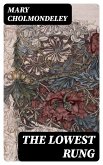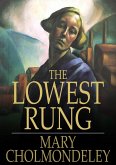This book focuses on the social exclusion and marginalization of respectable women in the context of their response to risk. Of the four stories included in the collection, three deal with crime, deviance, or both.
Dieser Download kann aus rechtlichen Gründen nur mit Rechnungsadresse in A, B, BG, CY, CZ, D, DK, EW, E, FIN, F, GR, HR, H, IRL, I, LT, L, LR, M, NL, PL, P, R, S, SLO, SK ausgeliefert werden.









